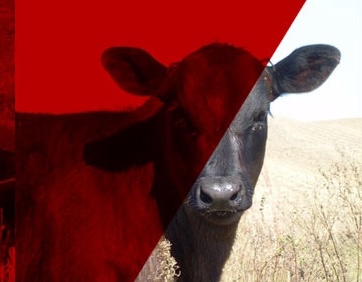The long, hot days of summer are a stark contrast from the cold nights of calving season. However, now is the time to start preparing for the arrival of the 2023 calf crop. August or September is a prime month for ultrasound pregnancy diagnosis of your cow herd.
Value of Pregnancy Detection
As many producers are thinking about culling and replacement decisions this fall, one management strategy that should be considered late summer/early fall would be pregnancy detection. The earlier a cow or heifer can be identified as pregnant or open allows managers to make decisions on keeping, selling or even re-breeding females. Pregnancy detection via rectal palpation can be determined as early as 35-45 days whereas ultrasonography can determine pregnancy as early as 30 days. One alternative could be implementation of blood tests which have been proven to accurately detect pregnancy as early as 28-32 days.
Advantages of Early Detection in Heifers
Heifers who are identified as open can be managed differently than their pregnant counterparts. Operations that utilize reproductive technologies, such as artificial insemination (AI) and embryo transfer (ET), have the advantage of knowing breeding dates. This information can be used to schedule early pregnancy diagnosis with your veterinarian. The following example follows dates for artificially inseminated heifers exposed to a clean-up bull for 60 days.
Heifers AI date: May 15
Bull exposure: May 20 – July 15
Ultrasound date: August 15
Calving dates: February 21 – April 23

During the ultrasound, heifers can be identified according to which cycle they were bred. Heifers bred to AI will be approximately 90 days gestation whereas bull bred heifers will be between 30-65 days gestation. Separating the cow herd by calving dates allows producers to create feeding groups with similar nutritional requirements. It also decreases calf health risks by segregating calves by age. This technique, known as the Sandhills Calving Method, decreases the pathogen load exposure on newborn calves. If retention is not the plan, bred heifers’ marketability increases with a known calving date and potential fetal sexing. Successful fetal sexing has been reported from 50 to 120 days but should be determined by experienced veterinarians.
Another benefit of early pregnancy diagnosis is identification of open heifers. Open animals can be moved from valuable feed sources and sold in a historically higher August-September cull market. Non-pregnant heifers can continue to put on weight and can enter the yearling or feeder market. Options to re-breed open cows for a fall or late summer calving group or if feed resources allow, feeding out open cows or grazing them on corn residue may be an option. More information on the impact of price and management on culling decisions or how to manage cows through dry conditions can be found in past articles.
Potential Disadvantages of Early Pregnancy Diagnosis
Keep in mind that rectal palpation and ultrasound does take time and experience and can have a long learning curve for inexperienced technicians. Producers should realize that stress to heifers and cows early in pregnancy can result in embryonic loss. Research has shown that heifers pregnancy checked 42 to 74 d by ultrasound or rectal palpation resulted in an overall loss of 1.55% and ranged from 1-3.5%. The blood test includes a moderate cost to ship and test samples as well as a five to seven day turn around for results. Therefore, this method would not allow for sorting, separation, or replacement assessment on the spot when working cattle. Additionally, determining stage of pregnancy would not be an option if you are considering this method.
Taking advantage of ultrasound pregnancy diagnosis can increase profits by decreasing unnecessary feed costs and reducing calf health problems. Having an idea of when your heifers will calve has the potential to prevent a few sleepless nights – which is priceless.
Interviews with the authors of BeefWatch newsletter articles become available throughout the month of publication and are accessible at https://go.unl.edu/podcast.
Topics covered:
Cattle health, Marketing & risk management, Nutrition, Breeding, Genetics & selection

